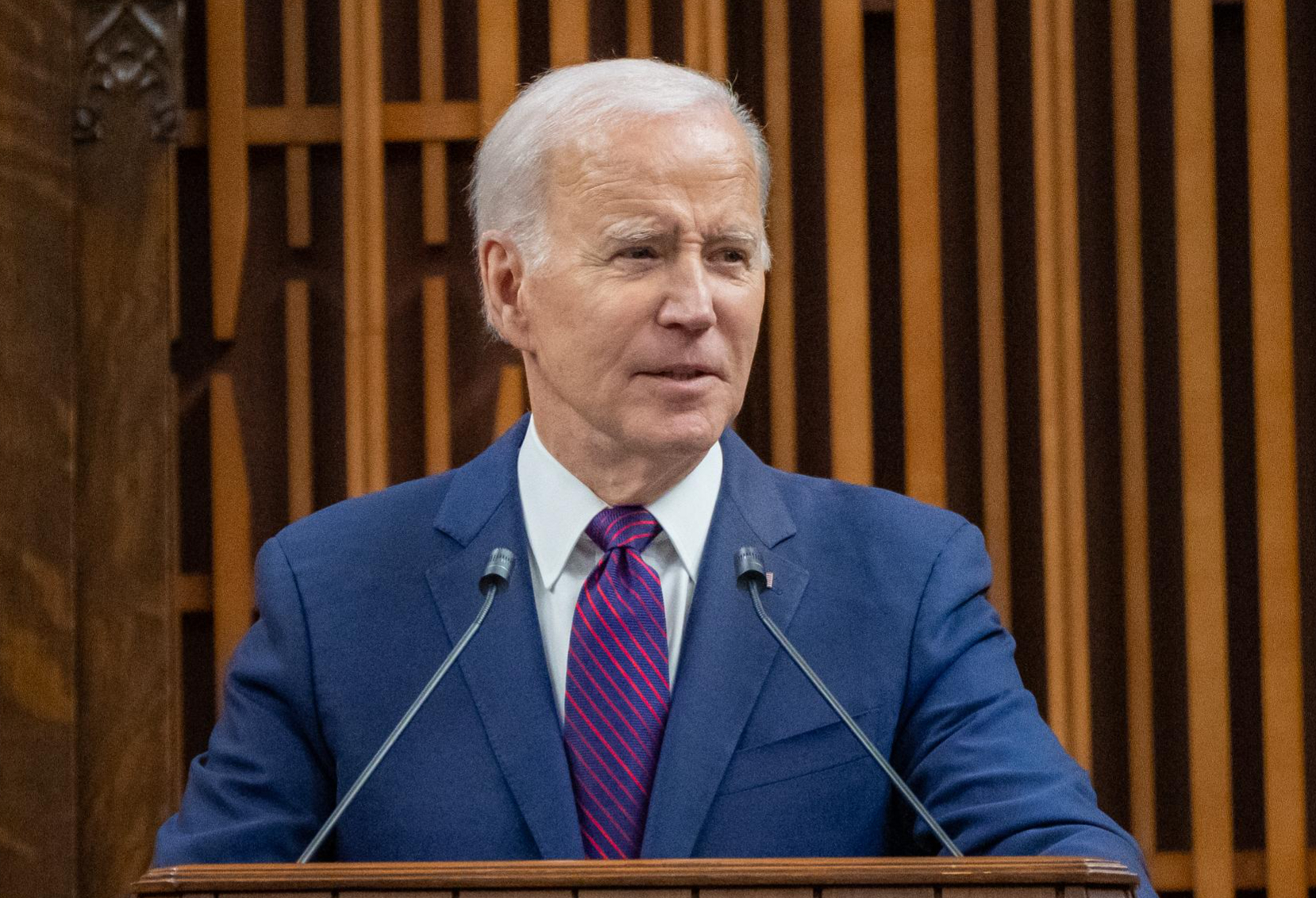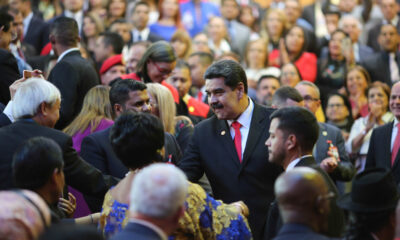Guest Columns
Democrats’ Convention Rules Actually Give Delegates Some Leeway

President Biden’s debate performance on Thursday night has brought talk of replacing him on the Democratic presidential ticket out into the open. Most have focused on Biden voluntarily withdrawing from the race. There is, however, another solution that is being ignored by party leaders. They can simply decide to nominate a different candidate.
Democrats let their delegates vote “in all good conscience”
I know this sounds strange, since the 4,696 delegates who will attend the convention, and particularly most of the 3,949 who are pledged to vote for Biden, have likely already booked their hotel rooms in Chicago. The dirty little secret about the Democratic Party, as Bernie Sanders’ supporters learned in 2016, is that the rules governing their conventions are entirely “democratic.” Sanders’ problem was with the so-called “superdelegates,” who attend the Democratic National Convention by virtue of their leadership position in the party. The disconnect between voters and delegates, however, potentially also extends to the rest of the delegates.
While those who participate in the party’s caucuses and primaries may believe they are directly selecting the party’s nominees, the delegates who represent their votes at the convention are merely asked to “in all good conscience reflect the sentiments of those who elected them [emphasis mine].”
The flexibility built into this language is not accidental. The history goes back more than 50 years to when Democrats overthrew the traditional “smoke-filled” room method for selecting presidential candidates. Until then, the caucuses and primaries functioned more as beauty contests than as actual elections. The key event was the riot-plagued 1968 Democratic National Convention in Chicago, where Hubert Humphrey managed to secure the Democratic nomination despite skipping the primaries.
The McGovern-Fraser Commission – and its abandonment
The result was the McGovern-Fraser Commission, named after South Dakota Sen. George McGovern and Donald Fraser, the mayor of Minneapolis. Their report eventually empowered rank-and-file Democrats to play a determinative role in who would head the party’s presidential ticket.
After the Democrats were crushed in two of the following three presidential contests, the party backpedaled on some of these reforms, allowing, for example, the automatic participation of party leaders and elected officials (the “superdelegates) in the convention roll call. More importantly, they left their delegates an escape hatch, adopting the “good conscience” language already mentioned.
Prior to this reform, Democratic convention delegates were bound, on the first ballot at least, to vote for the candidate to whom they were pledged. If they failed to keep their word, they could be replaced by an alternative delegate. Interestingly, this is similar to the rule currently governing the GOP convention, where any delegate who tries to cast their vote for a different candidate will not be recognized by the convention.
Democrats still give much power to elected delegates
While the Democrats have reduced the power of superdelegates, denying them a vote during the first round of balloting, they have not done so for the elected delegates. There is no penalty for delegates who determine that, “in good conscience,” they can’t support President Biden. As Elaine Kamarck, a long-time Democratic insider, senior advisor to the Gore campaign, and one of the foremost experts on primaries and conventions, wrote in her 2016 book, the Democrat’s choice of words “leave open the possibility that future conventions could overturn the verdict of the primaries and save a party from defeat in November.”
The notion that Biden would have to voluntarily remove himself from the ticket is, therefore, driven not by a procedural necessity but by a politically informed deflection. Quite simply, the party leadership doesn’t want to admit that they can’t risk an open convention. Why? Because there is no palatable heir-apparent. While Vice President Kamala Harris would normally be seen as the next in line, her polling numbers are no better than Biden’s, and she’s offered no evidence of having sharpened the political skills that resulted in her quickly moving from near front-runner status to an also-ran during the 2020 Democratic primary.
A risk of a divisive move
To pass her over, however, whether for a male candidate such as Gavin Newsom or even another female candidate, would be incredibly divisive within the party. Democrats are already losing the support of African American men and would have to worry that this slight would trigger a similar dynamic among black women. Keep in mind that all this will likely be taking place in a convention hall surrounded on the outside by anti-Israel protesters demanding a candidate who is favorable to their cause.
While it’s understandable why the Democrats would want to avoid this scenario, Biden’s increasingly obvious infirmities have placed them in an untenable position. The leaders of the party need to make a choice. They should start by admitting to their voters that they have the power to make that choice.
This article was originally published by RealClearPolitics and made available via RealClearWire.
Paul Sracic is professor of Politics and International Relations at Youngstown State University and adjunct fellow at the Hudson Institute.
-

 Civilization5 days ago
Civilization5 days agoWhy Europe Shouldn’t Be Upset at Trump’s Venezuelan Actions
-

 Christianity Today5 days ago
Christianity Today5 days agoSurprising Revival: Gen Z Men & Highly Educated Lead Return to Religion
-

 Civilization2 days ago
Civilization2 days agoTariffs, the Supreme Court, and the Andrew Jackson Gambit
-

 Civilization3 days ago
Civilization3 days agoWhy Europe’s Institutional Status Quo is Now a Security Risk
-

 Civilization4 days ago
Civilization4 days agoDeporting Censorship: US Targets UK Government Ally Over Free Speech
-

 Executive3 days ago
Executive3 days agoWaste of the Day: Wire Fraud, Conflicts of Interest in Connecticut
-

 Civilization3 days ago
Civilization3 days agoEpstein and the destruction of trust
-

 Education4 days ago
Education4 days agoWaste of the Day: Throwback Thursday – The Story of Robosquirrel










